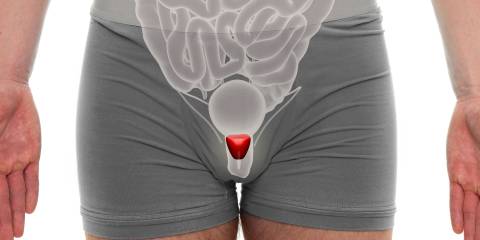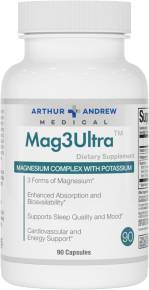The National Center for Health Statistics recently ranked life expectancies in a number of developed countries worldwide. There’s no easy way to break it: Men from the US didn’t crack the top 10. They didn’t even make the top 20.
The good news is it’s easy for men to boost wellness and longevity with simple lifestyle changes.
Nutrition for Men Through Life
In general, guys need more magnesium and B vitamins than women—but less iron.
Start with a high-quality multivitamin/mineral formulated for men. Then check the age ranges below for targeted supplements.
20-35: Top Health Tips for Young Guys
-
Eat five or more servings of fruits and vegetables daily.
-
Get 30-plus grams of fiber. Psyllium, flaxseeds, or Salba (a proprietary, heirloom seed from Peru) are useful sources.
-
Exercise at least three times a week. Supplement with protein before and after each session.
-
To fight postworkout inflammation, consider fish oils rich in omega 3s. Garlic and ginger are anti-inflammatory herbs that taste great and can be taken as supplements.
-
Inflammation can lead to cardiovascular problems. Ask a healthcare provider about a C-reactive protein (CRP) test to measure inflammation levels.
-
An anti-inflammatory regimen is among the best choices you can make now for long-term heart health. Get plenty of antioxidant vitamins like C and E.
36-50: Best Health Strategies for the Midlife Male
Battle that belly and you fight disease like Type 2 diabetes and heart disease. Even for lean men, a growing waist signals risk for disease.
For each additional 5.5 inches he packs around the middle, a man’s chance of experiencing heart disease rises by 35 percent!
-
Help trim body fat. Vitamin-B complex, vitamin C, zinc, magnesium, and chromium all support healthy metabolism.
-
Green tea extract supports weight loss.
-
An antioxidant involved in energy production, coenzyme Q10 (CoQ10) tends to be low in overweight people. CoQ10 is also essential for anyone taking statin drugs.
-
When stress and fatigue hit, a few supplements may help you regain balance. Nutrition expert Patrick Holford suggests the following to combat the negative effects of stress: B vitamins (B1, B2, B3, B5, B6, B12, folic acid, and choline) along with CoQ10, vitamin C, calcium, magnesium, iron, zinc, and chromium.
-
Reduce or eliminate caffeine, sugar, and other short-term energy crutches, and replace them with natural options like the amino acid tyrosine.
-
D-ribose (a five-carbon sugar that’s a structural component of DNA and RNA) may boost energy and helps stave off sore, stiff muscles.
51 Plus: Guys, Keep Your Engines Running!
Some form of erectile dysfunction affects an estimated one-third of men over their lifetimes.
After ruling out underlying causes such as high cholesterol, diabetes, or certain pharmaceuticals with a doctor, consider natural alternatives to prescription drugs.
-
Ginkgo, L-arginine, choline, B vitamins, and zinc support erectile health, particularly after two to six months of use.
-
Antioxidant vitamins C and E, the trace mineral selenium, and essential fatty acids support optimal sex drive and functioning.
-
Talk to a trained herbalist about botanical boosters for the thyroid and adrenal glands. Both of these glands provide a foundation for sexual and overall well-being. (Helpful herbs may include bayberry, passionflower, and skullcap.)
-
Anyone with hypertension (high blood pressure) is wise to cut salt intake and seek stress-reducing techniques such as meditation or biofeedback.
-
Supplemental garlic, quercetin (a flavonoid found in fruits and vegetables), and hawthorn have been found to help lower blood pressure in recent studies—the latter may also help lower cholesterol.
-
Stay sharp as you live longer. Gotu kola, a popular Indian herb, works to stimulate the brain, strengthening memory and mental ability.




